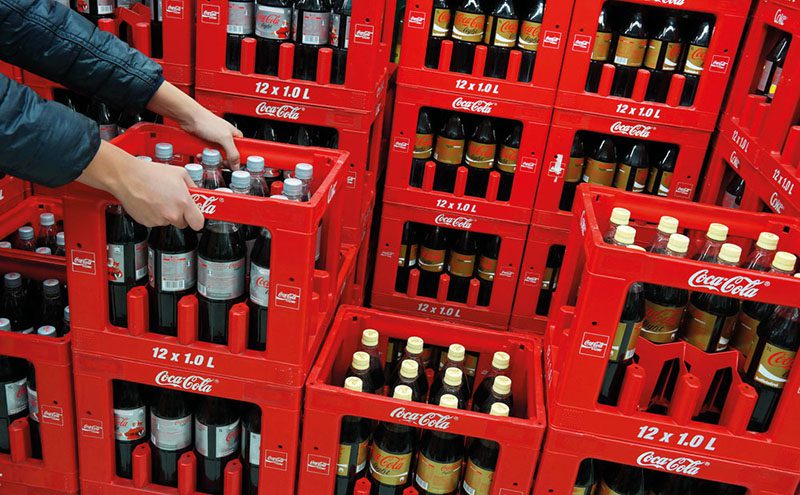Support appears to be mounting for the adoption of a mandatory deposit return system (DRS) for plastics drinks containers sold in the UK.

Taking empty bottles back to the shop may be a familiar memory for many in the UK (albeit an uncomfortable one in my own 1980s neighbourhood, for those fearful of the derogatory appellation ‘bottle merchant’), but such schemes have slunk from view in recent decades, outside of mainland Europe (where they are used in 11 countries) and regions of the US and Australia.
But all that could be about to change. On 17 February, drinks giant Coca Cola Great Britain (CCGB) announced what seemed to be a u-turn on the measure, indicating its support for a trial DRS to be conducted in Scotland. While on 3 March, the Daily Mail reported that Environment Minister Therese Coffey had “hinted” that such a scheme could form a part of Defra’s soon-to-be-unveiled litter strategy for England, an apparent change of direction from the month before, when Defra told the newspaper the strategy included “no plans” for such a scheme.
Plastic bottles and cans currently account for around 40% by volume of all litter found in the UK. In March 2016 the Marine Conservation Society reported a 43% rise in plastic bottle beach litter between 2014 and 2015.
Back in February 2015, support for the idea had seemed to receive a boost by an opinion poll conducted by the Association for the Protection of Rural Scotland, indicating that 78% of Scots supported a DRS for drinks bottles.
Scottish Government officials met with the UK Government in June 2016 to discuss the potential for UK-wide schemes.
In November, The Green party’s Caroline Lucas presented an early-day motion to the House of Commons, proposing that such a scheme be introduced as part of the National Litter Strategy. She looked to the recent success of the mandatory five-pence-carrier-bag-charge, which has reduced the distribution of plastic bags in the UK by around 6 billion. The evidence from other countries also supports the case for a DRS, she said. It suggests that DRS schemes boost recycling and reduce litter.
In January Scotland’s Environment Secretary Richard Lochhead, announced he had commissioned further research on the topic. A proposed DRS would encourage consumers to return bottles, but would require the addition of a small refundable charge to the price of drinks – around 10-20p in the case of those sold in Scotland.
Despite evidence of their effectiveness in a number of European countries, there seemed to be little support from the food and drinks industry, until February’s CCGB announcement.
Zero Waste Scotland had previously conducted a call-for-evidence on the suitability of DRS schemes for Scotland in 2015, publishing feedback from food retailers and drinks firms. Asda at the time said the introduction of a DRS would be “a regressive step that would penalise people on low incomes and cause serious inconvenience for shoppers, many of whom play an effective part in recycling”. The firm said the feasibility study “significantly underestimated the potential costs for businesses” of introducing such a scheme.
Coca-Cola GB had also cited the scale of investment required and the lack of evidence that such a scheme would work, concluding that “a DRS is not the right solution to the litter problem in Scotland at this time.”
Greenpeace Energy Desk also published in January a report on leaked documents from the drinks company, which appeared to reveal its opposition to such plans.
Coca-Cola u-turn
However, in February, CCGB seemed to reverse its previous opposition. Commenting on its changed outlook on the matter, a spokesperson said: “We have embarked on a major review of our sustainable packaging strategy to understand what role we can play in unlocking the full potential of a circular economy in Great Britain.
“Our sustainable packaging review is ongoing, but it’s already clear from our conversations with experts that the time is right to trial new interventions such as a well-designed de
posit return scheme for drinks containers, starting in Scotland where conversations are underway,” the company added.
In a subsequent tweet, the Scottish environment secretary Richard Lochhead welcomed the policy switch as a “big turnaround & massive boost for the campaign”.
Speaking to Skynews, the firm said it had also been listening to consumers and that two thirds (63%) of them support the introduction of a deposit return system in the UK, and half (51%) say they’d be more likely to recycle as a result.
Cost objections
DRS opponents have previously objected to the costs they present, particularly for local councils. The British Plastics Federation has previously cited evidence from Germany, where the cost of collection per item through the DRS is said to be three times as high as a kerbside system (INCPEN Factsheet Packaging & Deposits). A spokesman from the group has said: “The introduction of such a system is likely to undermine the existing kerbside collection operated by local councils as well as penalise consumers who already recycle at home.
European experience
However, in its February statements, CCGB cited its experience in Europe in a positive light, that it had shown that deposit schemes can work if they are developed as part of an overall strategy on the circular economy, in collaboration with all industry stakeholders.
DRS schemes currently operate in 11 countries in mainland Europe, as well as parts of the US and Australia. Evidence from countries like Germany, Sweden and Denmark supports the claim that they raise collection rates. Sweden has operated a DRS for cans since 1984, and another for plastic bottles since 1994. These work along similar lines to the Scottish proposals, where a deposit is added to the cost of drinks, which is refunded to the consumer when the container is returned.
This latest hint of Government intentions suggests a greater receptivity to this kind of evidence, and has been welcomed by environmental groups. Commenting in the Daily Mail, John Read, founder of the Clean Up Britain campaign, said it was “very encouraging” to hear Therese Coffey’s latest comments.
A trial of a plastic bottle DRS scheme could begin in Scotland as early as 2018.







